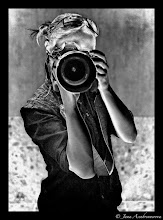 The sum of 1.4 million dollars contributed to the “Yes on 8” campaign came, ironically, from a state that is one of the two only in the nation that allows same sex marriages.
The sum of 1.4 million dollars contributed to the “Yes on 8” campaign came, ironically, from a state that is one of the two only in the nation that allows same sex marriages.It was the Knights of Columbus, based in New Haven, Connecticut, who provided this financial support to Proposition 8 in an attempt to secure a ban on same-sex marriage in the State of California.
“Marriage is a social institution that is as old as humankind itself. In modern society it forms an indispensable function,” said Patrick Korten, Vice President for Communications of The Knights of Columbus.
Having nationwide support, The Knights of Columbus are financially able to provide ample funds to support traditional marriage.
“We have been involved in every one of the 30 state referenda that have been held. Every single one of which has resulted in the passage of an amendment to protect traditional marriage,” said Korten.
“California may like to think of itself as the only one that really counts,” said Korten “but in fact in 29 other states over the past decade similar referenda had been held and large majorities of voters have voted for exactly the same kind of constitutional amendment.”
Based on their religious beliefs the Knights of Columbus do not consider gay marriage traditional and, in fact, it is quite unacceptable to their point of view.
“Every child deserves to have a mother and a father when they grow up,” said Korten. “They do not always contain the ideal but that is the desirable ideal in our view that is absolutely incontestable.”
A total of six cases challenging Proposition 8 were filed recently in the Supreme Court of California from which three were accepted for review, said Lynn Holton, Public Information Officer from Judicial Council of California.
According to Korten, the Knights of Columbus currently have no plans to further fight the case of same-sex marriage, because there are several other groups, right now, taking up that fight to protect Proposition 8 against the lawsuits.
“There is no real reason for us to pile on,” said Korten who is confident in a positive outcome from the lawsuits.
“We hope that they (the California Supreme Court) do not go down that road again,” said Korten. “We hope that they will respect the decision of the people of California and allow their opinion, which has now been expressed twice in statewide referenda.”
According to Holton there won’t be any new updates or information available on the case until sometime next year. The oral arguments are scheduled for March 2009.
“We support the work of those who were seeking to persuade the California Supreme Court to allow the referendum to remain the final word,” said Korten.
The Knights of Columbus is a nonprofit society founded in 1882 by a priest, Michael McGivney, who formed the organization for Catholic men to join together and perform works of charity.
The society has grown nationwide as well as internationally over the years.
“From one little council in one little town in Connecticut,” said Korten “we are now an international organization with 13,000 local counsels around the world and we currently have more than 1.75 million members.”
“There are more than 65,000 members in the State of California,” ads Korten.
“We support the work of those who were seeking to persuade the California Supreme Court to allow the referendum to remain the final word,” said Korten.
The Knights of Columbus is a nonprofit society founded in 1882 by a priest, Michael McGivney, who formed the organization for Catholic men to join together and perform works of charity.
The society has grown nationwide as well as internationally over the years.
“From one little council in one little town in Connecticut,” said Korten “we are now an international organization with 13,000 local counsels around the world and we currently have more than 1.75 million members.”
“There are more than 65,000 members in the State of California,” ads Korten.
















































